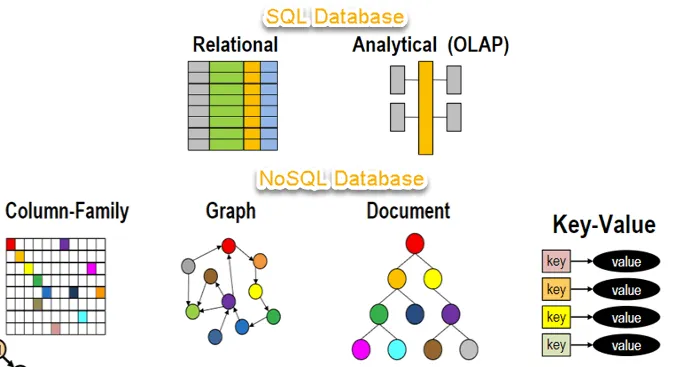Posted on September 25, 2020 by Dean Conally | Updated: October 8, 2020
Category: Tutorials | Tags: Cassandra, Columns, Database, Database Management, Database Structure, DB2, Document Stores, Dynamic Schema, Extensible Record Stores, Graph Stores, JSON, Key-Value, MSSQL, Multi-Row, MySQL, Node, Node Relationship Node, Non-Relational Databases, NoSQL, NoSQL Model, Query, Rows, Scalability, Schema Free, SQL, Stores, Tables, Wide-Column
Reading Time: 5 minutes
What is NoSQL?
A NoSQL or a NoSQL Database is a term used when referring to a “non SQL” or “not only SQL” database. NoSQL databases store data in a different format than a traditional relational database management systems. This is why NoSQL is often associated with the term “non-relational” database. Simply put, NoSQL databases are modern databases with high flexibility, blazing performance, and built for scalability. These databases are used when you require low latency and high extensibility while working with large data structures. The versatility of NoSQL is due to the nature of as being unrestricted in comparison to relational databases models such as MySQL or DB2.
SQL vs. NoSQL Comparison
There are multiple differences between SQL and NoSQL database types. In the table below, we will compare some of the most critical variations.
#tutorials #cassandra #columns #database #database management #database structure #db2 #document stores #dynamic schema #extensible record stores #graph stores #json #key-value #mssql #multi-row #mysql #node #node relationship node #non-relational databases #nosql #nosql model #query #rows #scalability #schema free #sql #stores #tables #wide-column
